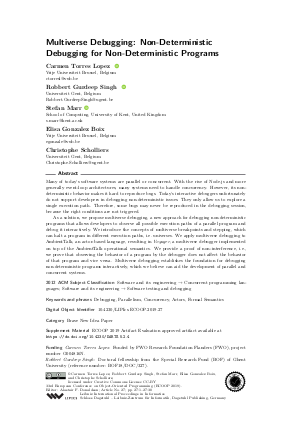LIPIcs.ECOOP.2019.27.pdf
- Filesize: 2.11 MB
- 30 pages

 Creative Commons Attribution 3.0 Unported license
Creative Commons Attribution 3.0 Unported license







Feedback for Dagstuhl Publishing